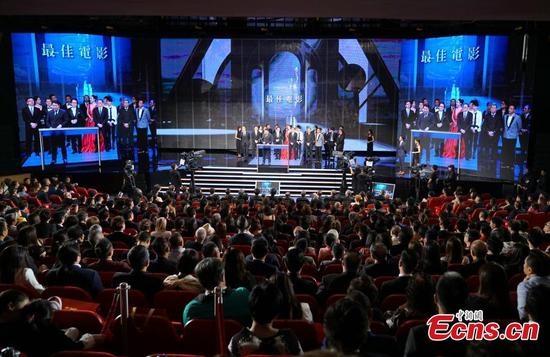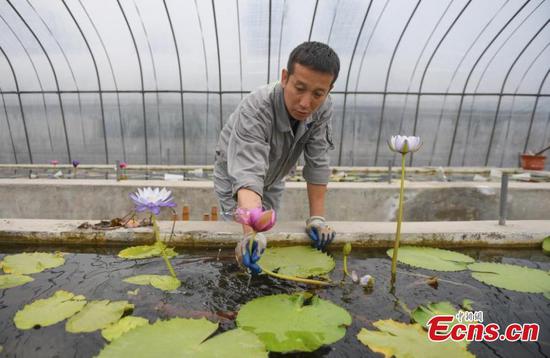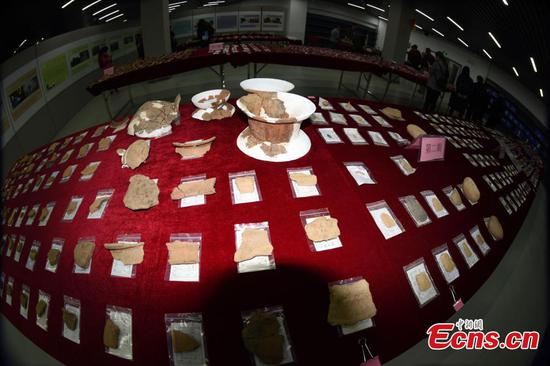
Potential homebuyers learn about property projects at an industry expo in Taiyuan, capital of Shanxi province. (WEI LIANG/CHINA NEWS SERVICE)
China's property developers are pulling out all the stops to meet their sales target in a sluggish market, and the latest trend among them was to offer hefty discounts during the Singles Day online shopping spree on Nov 11.
Nearly all kinds of apartments have been put online for sale by developers. In addition to foreclosed and pre-owned homes, Ali Auction, the online auction platform under Alibaba Group, made available more than 10,000 homes with special discounts, many of which are premium school district properties and homes nearby metro stations, the Securities Times reported.
Likewise, online retailer JD joined hands with more than 200 developers in 70 cities to put on sale more than 6,000 apartments at a combined discount of 300 million yuan ($42.8 million), according to Zeng Fuhu, general manager of JD Real Estate.
Omnichannel retailer Suning and property developer Evergrande put on sale up to 10,000 apartments from 800 property projects.
"E-commerce sales are an innovative channel for developers to seek potential buyers, which may help combat downward pressure," said Yan Yuejin, research director at the E-House China R&D Institute.
"Tightening credit, rising financing costs, and the restrictions imposed on homebuying have eroded the rapid growth of the property sector, and the market is entering a stabilized development stage when those who adapt themselves timely and properly can survive," said Hui Jianqiang, head of research with Beijing Zhongfang-Yanxie Technology Service Ltd.
The 142 property developers listed in Shanghai and Shenzhen in the first nine months reported combined revenue of 1.5 trillion yuan, up 22.04 percent year-on-year, but 5.02 percentage points slower than the same period last year, according to statistics from Shanghai-based information provider Wind Info.
In the meantime, the net profit of Chinese developers increased 12.52 percent to 144 billion yuan during the period between January and September, 19.56 percentage points less than that of 2018.
Along with the slower growth in revenue and net profit, 26 property developers reported a negative net profit in the first three quarters, the Wind Info data indicated.
"Marketing cost controls and the popularity of internet are likely to make online platforms a potential channel for home trading. Since houses are becoming simply places for living instead of tools for speculation, this also makes it more possible for apartments to be traded online," said Yan.
However, experts said the Singles Day home sales via e-commerce are far from becoming a mainstream way for developers. "The homes and apartments available for sale online remain few compared with the scale of China's property market," said Hui.
Hui said in the new property development context, real estate developers will focus on improving their competitiveness, adjusting strategies, improving risk control, and improving cash flow. "Therefore, the property sector will continue to polarize with the large companies expanding whilst smaller and less competitive ones die out," he said.
As destocking remains the priority of developers, it is expected that they will keep exploiting new market opportunities in the future, according to Yan.
Zeng with JD hoped the boundless retailing capability of e-commerce will enable the real estate sector to enter a fully competitive status with cross-the-border products and business models.


















































